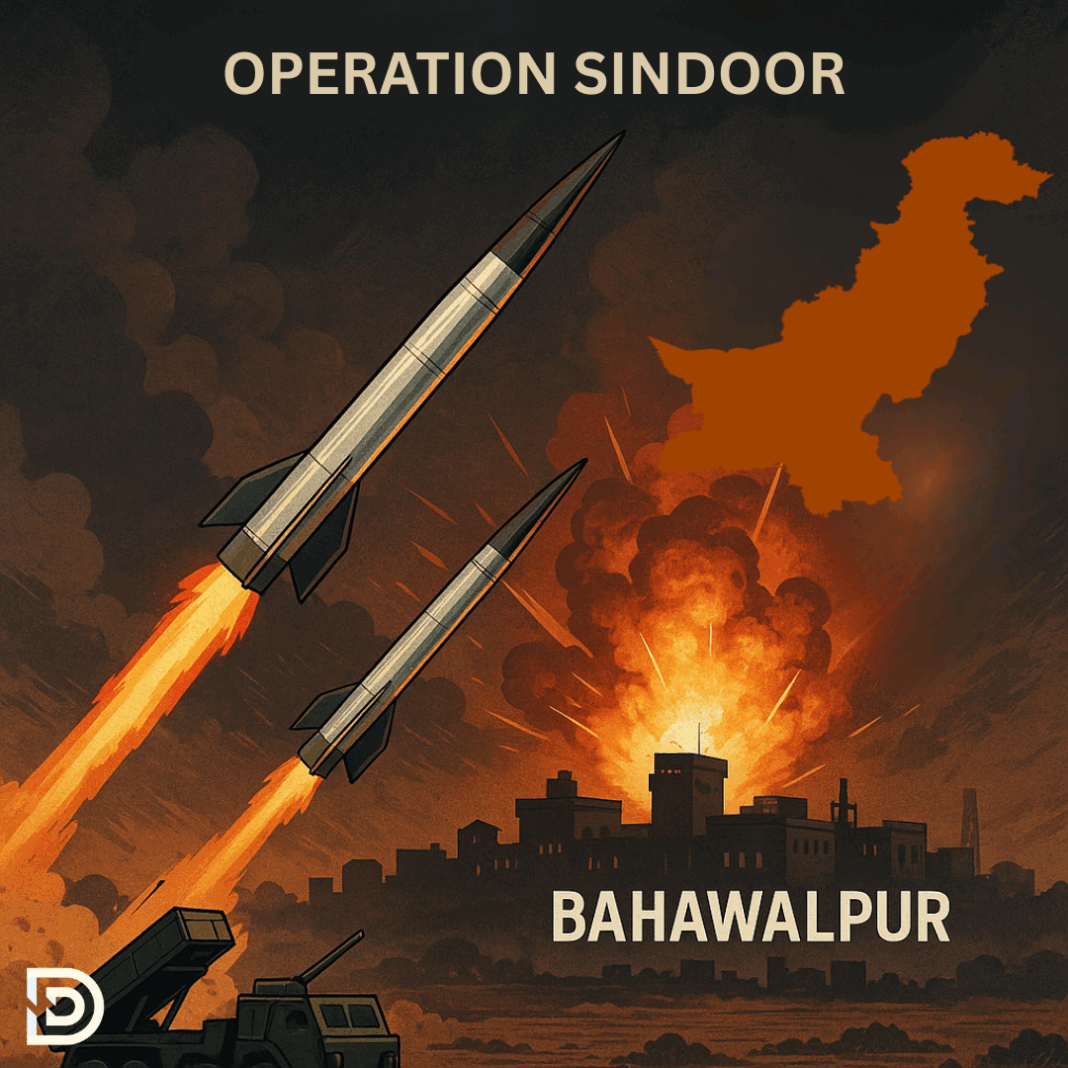India’s Strong Message After Pahalgam Attack
On May 7, early in the morning, India launched a special military operation called Operation Sindoor. This came just days after a deadly terror attack in Pahalgam, Jammu and Kashmir, where 26 innocent tourists lost their lives. Terrorists had opened fire on a tourist bus, causing nationwide anger and grief.
In response, the Indian military launched Operation Sindoor, striking nine different targets located inside Pakistan and Pakistan-Occupied Jammu and Kashmir (PoJK). These were not ordinary places. According to intelligence sources, these locations were terror hubs — where planning, training, and recruitment of terrorists took place.
One of the biggest targets in Operation Sindoor was in Bahawalpur, a city in Pakistan. This was where the Jaish-e-Mohammed (JeM) had its main base. The base was known as the Jamia Masjid Subhan Allah complex. It was a large area that had grown over time — now covering more than 18 acres. This compound had multiple buildings, guard posts, and facilities used to train and prepare terrorists.
As part of Operation Sindoor, Indian missiles struck with precision. The entire JeM compound was leveled, according to reports. Intelligence had shown that JeM was still active at the site. Just this February, a public event was held there, addressed by Talha al-Saif, who is the brother of Masood Azhar, the founder of JeM. That event confirmed that the group was still using the compound for terror-related activities.
India said the goal of Operation Sindoor was to target only terror infrastructure, not civilians. This was a focused military mission. The Indian government released a statement confirming the strikes and the destruction of multiple terror facilities.
US President Trump Reacts To the Strike
As soon as news broke out about the strike, world leaders started reacting. One of the first was former US President Donald Trump. While speaking to reporters inside the Oval Office, Trump referred to the development as he commented on Operation Sindoor:
“It’s a shame. We just heard about it just as we were walking in the doors of the Oval. Based on a little portion of the past, I suppose they understood something was going to happen.”
He pointed out that India and Pakistan have had a difficult history. He added:
“They’ve been fighting for a long time. If you really think about it, they have been engaged in combat for centuries and decades.”
Trump also expressed hope that Operation Sindoor would not lead to further escalation. He said:
“I hope it ends very quickly.”
Trump’s comments were meant to show concern, but he also recognized that Operation Sindoor came after a serious terror attack. The former president has often spoken about the importance of fighting terrorism. His reaction was a mix of surprise and sadness about the long-standing conflict between the two countries. By addressing Operation Sindoor, Trump acknowledged the gravity of the situation and India’s decisive response.
Marco Rubio, US Secretary of State, is “keeping an eye on the situation.”
Alongside Trump, US Secretary of State Marco Rubio reacted to the strike, posting on X that he was “monitoring the situation closely” and hoped it would “end quickly.” He also said the U.S. would continue to engage with both India and Pakistan for peace.
The U.S. response has been calm but clear in its stance against terror. It supports action on terror camps while urging restraint to avoid wider conflict.
India, meanwhile, has shifted its strategy on terrorism—acting directly when threats arise. The nine sites targeted in Operation Sindoor were chosen based on intelligence and satellite proof. These were active JeM locations, with public events held as recently as February.
The operation has drawn international attention. Inside India, there’s widespread support for the military response, especially after the tragic Pahalgam attack that killed 26 tourists.
The name “Sindoor”, symbolizing purity and sacrifice, reflects the emotional weight behind the mission. Though the strikes are over, their impact continues to resonate across the region.

